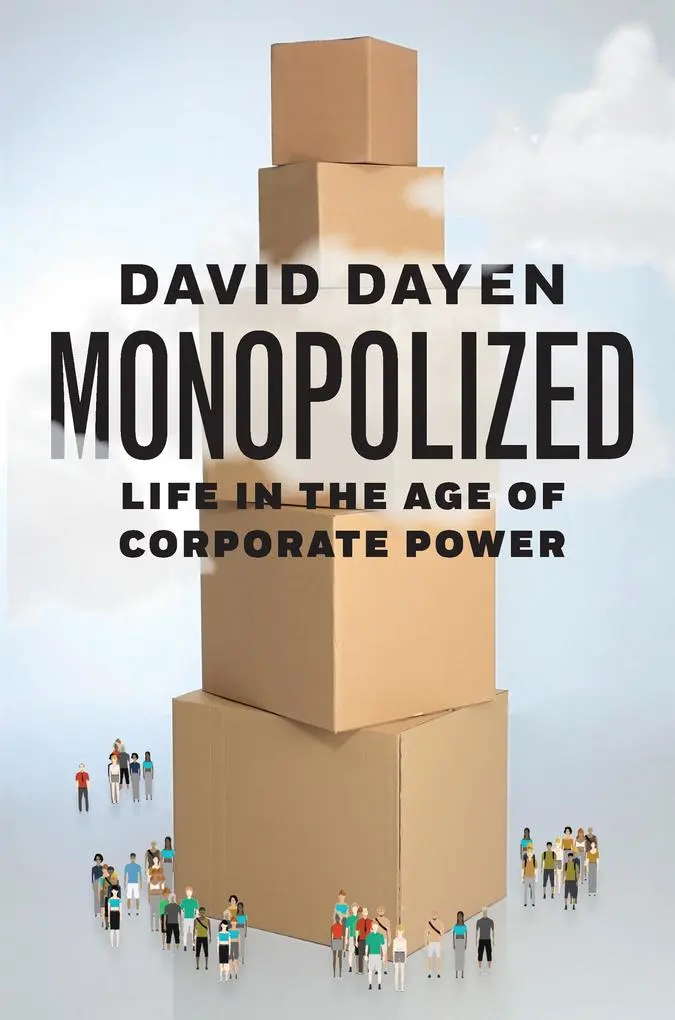
Warren Buffet, monopolist
January 28, 2022
Originally published at pluralistic.net
Cory Doctorow
Monopolized: Life in the Age of Corporate Power is David Dayen’s new book about the concentration of industry in America and around the world; one interesting implication of monopolies is that they are intensely individual phenomena.
https://thenewpress.com/books/monopolized
That is, despite being driven by vast social forces, monopolies have monopolists: named, well-known individuals whose personal choices directly lead to misery, hardship and death for millions.
People like Warren Buffett, America’s folksiest monopolist.
Buffett isn’t shy about this. His whole deal is backing companies with “moats” – that is to say, companies that don’t have to worry about competition (cue Peter Thiel, saying the quiet part aloud: “Competition is for losers”).
Buffet is in nearly every chapter of MONOPOLIZED. In an interview with Matt Stoller, Dayen explains how this came to be.
https://mattstoller.substack.com/p/warren-buffett-americas-folksiest
What kinds of monopolies does Buffett love? Well, if you can’t afford dialysis or if you lost a loved one to opioids, chances are Buffett made a buck. A classic Buffett moat is health/pharma, which are easy to monopolize thanks to the captive audience and/or addiction.
If your town only has one newspaper, that might be Buffet’s doing – and if not, it was the doing of one of his buffettistas, using his playbook to buy one paper and then crush its rivals with anticompetitive tactics.
If you own a mobile home and lost money the instant you bought it and get worse off every year in a trailer park, that’s probably Buffett, who understands that when someone is desperately clinging on at the brink of homelessness, you can really squeeze ’em.
If you own a .net or .com domain that you’re paying big bucks to renew every year, that’s Buffett, working through Verisign, one of the world’s most profitable companies, thanks to its government monopoly on the to biggest TLDs.
If your favorite craft brewer was driven to its knees and bought up for pennies by the Brazilian private equity firm 3G, that was Buffett, who drove the purchase of beer monopolist AB Inbev. Buffett’s also behind megamergers like Burger King/Tim Horton’s and Kraft/Heinz.
And while Buffett rarely buys tech businesses, he was big, early on Amazon: “I had to understand the product and business.” Dayen translates: “he understood the monopoly that Amazon was putting together, so he purchased a large share of their stock.”
Buffett’s also big on Moody’s part of the hyperconcentrated bond-rating market: “I know nothing about credit rating. The only reason I bought it is because there are only three credit rating agencies and they serve the whole country, and they have pricing power.”
Buffett’s ideal investment is a monopolist, one that makes money so reliably, irrespective of poor quality or high prices, that “even your idiot cousin could run it.”
Buffett doesn’t just seek out monopolies: he creates them, he cheerleads them, he normalizes them. Buffett, perhaps more than anyone else on Earth, has legitimized the idea of monopolies.
As Dayen points out, “Buffett would be the best informant for an antitrust authority that you could find, because he’s already looked into the economy and found the companies that have the most inordinate market power. And so all you’d need to do is subpoena him and say, all right, tell me about this company that you bought and why you bought it. And you would say, well, they have this incredible pricing power. Well, there you go.”
Monopoly’s esoteric, so let’s put some sinew and blood onto those bones. Zephyr Teachout’s new book “Break ‘Em Up” has a great chapter on “chickenization,” the labor practice named for the way the poultry-processing monopolists do business.
https://pluralistic.net/2020/07/29/break-em-up/#break-em-up
If you’re a poultry farmer, here’s how your life works. The three poultry processors have divided up America so there’s only one processor in range of your farm. That processor tells you how to run your business.
They design your coop. They sell you your chicks. They tell you when and what to feed them. They tell you when to turn on the lights and when to turn them off. They tell you which vets to use, and which meds the vets can prescribe.
They experiment on you: some farmers are given experimental chick breeds, or experimental feeding or lighting schedules.
But through it all, they don’t tell you how much they’re gonna pay you.
You find that out when you send your chickens to the plant – they just…decide. If the price is too low, you go broke. Chickenizers tune the process to keep farmers at the brink of bankruptcy. If you complain, they stop buying your chickens.
If you complain in public, they tell all the other farmers that if they do business with you, they’ll stop being able to sell their chickens, too.
Chickenization isn’t just for chickens. It’s the Uber model, the Shipt model, the model of any “gig work” that tells you what you have to buy and spend, but not what you will earn, with the pretense that you are an “independent contractor.”
https://pluralistic.net/2020/07/14/poesy-the-monster-slayer/#stay-on-target
Chickenization is coming to vast swathes of the workforce, and lockdown will accelerate it, because if your job can be done anywhere in the world, your employer can shop for the cheapest labor, anywhere in the world.
And even though you’re working from home, bossware lets your employer (excuse me, the company you “contract to”) control and script your movements down to the keystroke, watching your facial expressions and listening to your mic.
https://pluralistic.net/2020/07/01/bossware/#bossware
That’s where the Wizard of Omaha’s love of “moats” gets us: chickenized worlds, run by bossware, where he gets rich, and we cling on by our fingernails.
